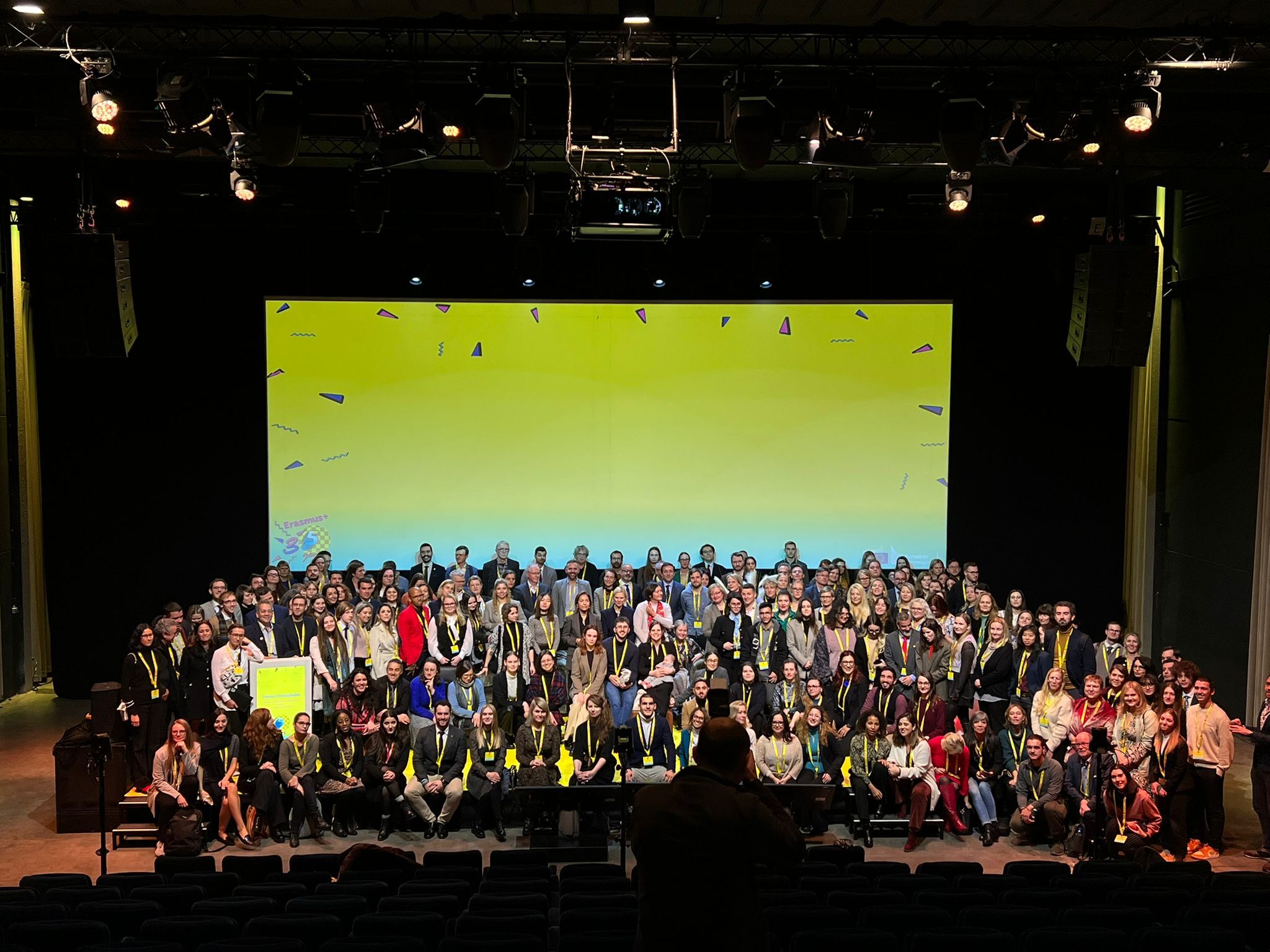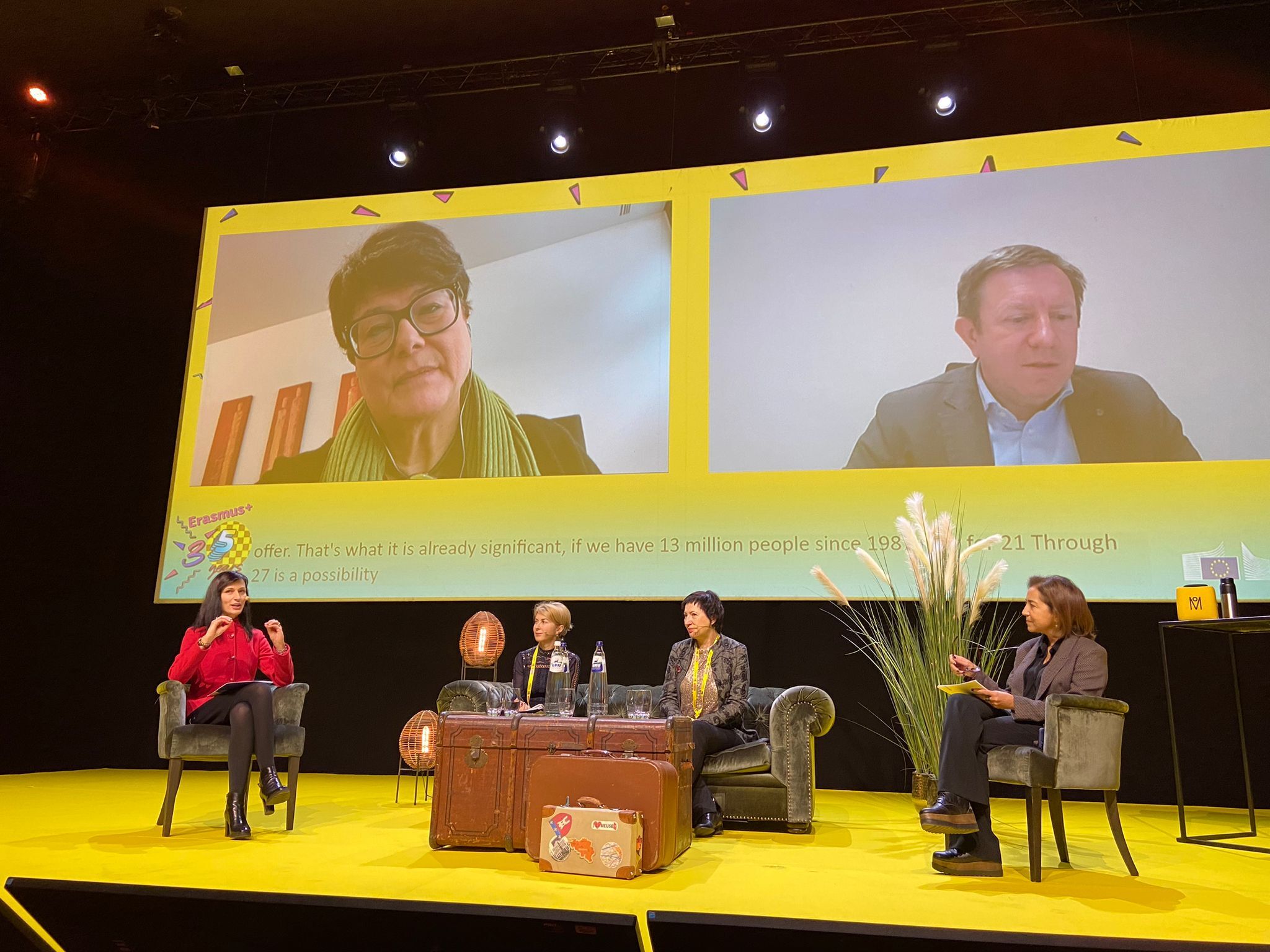Erasmus+ celebrated its 35th birthday
On Wednesday 14 December, the final birthday celebration of the iconic European cooperation programme took place in Brussels.

The event was attended by representatives of European institutions and national agencies, the founders of the programme, as well as teachers and pupils involved in Erasmus+ projects. The day-long conference focused on the programme's achievements to date, the history of its creation, its current priorities (digital and green transition, inclusion and participation in democratic life), as well as challenges and outlooks for the future.
Opening remarks were given by the Vice-President of the European Commission, Margaritis Schinas, and the Commissioner for Innovation, Research, Culture, Education and Youth, Mariya Gabriel. Schinas highlighted that the biggest success of Erasmus+ has been its extension from the mobilities of university students to mobilities and projects involving kindergartens, primary, secondary and vocational schools and organizations active in the field of youth and sport. He also mentioned that Erasmus+ is the most important European programme in spreading European values and identity.
Erasmus+ has already broadened the horizons of more than 13 million people
Mariya Gabriel then took the floor, pointing out that in its early days, in 1987, Erasmus offered the opportunity for student exchanges to only around 3 000 students, but since then, more than 13 million people have joined the programme. Gabriel also presented the main points of the Erasmus+ Annual Report 2021, published by the European Commission on 14 December. She highlighted that last year Erasmus+ supported almost 19,000 projects involving almost 70,000 organizations and 648 000 participants.
A panel discussion followed, during which Mariya Gabriel debated with Jaroslav Miller, Deputy Minister of Education, Youth and Sports of the Czech Republic, Tatjana Brabauskine from the European Economic and Social Committee, Tanya Hristova from the European Committee of the Regions and MEP Sabina Verheyen. During the panel, they reflected on the current challenges of Erasmus+, such as inclusion, digital and green transition and skills. They also spoke about Erasmus+ support to Ukraine and Ukrainian pupils, students and teachers and the new DiscoverEU initiative, which last year enabled more than 60,000 18-year-olds to travel across the EU by train for the period of 1 to 30 days.

The history and the future of Erasmus+ were discussed by representatives of the EU institutions and beneficiaries of the programme
The second panel was dedicated to the history of Erasmus+. Among the guests was Adam Smith, one of the founders of the programme. He shared his experience, described how the creation of the programme was negotiated with the Member States and added some anecdotes from behind the scenes.
This was followed by thematic workshops and panels on topics such as the European Year of Youth 2022, sustainability and green education, digitalization, youth participation in democracy, innovations in sport, successful communication and promotion of projects, and how to make international mobility accessible to all. The panelists stressed the need to update the qualitative framework for educational mobility and also to develop new formats (e.g. mobility for artists). They debated how Erasmus+ and European Solidarity Corps could include mini-grants for youth or what role can the green ambassadors play in spreading awareness of sustainability and green education. The main added value of the thematic sessions were the inputs of representatives of successful projects who shared their experiences and inspirational ideas.